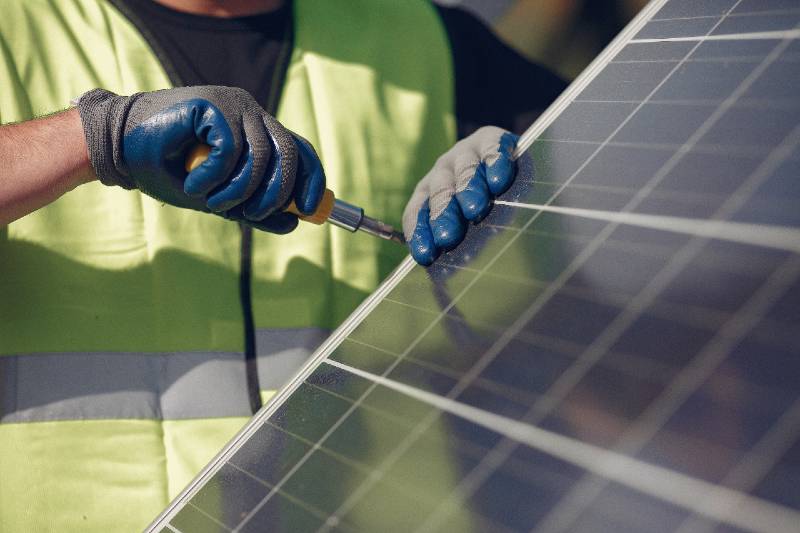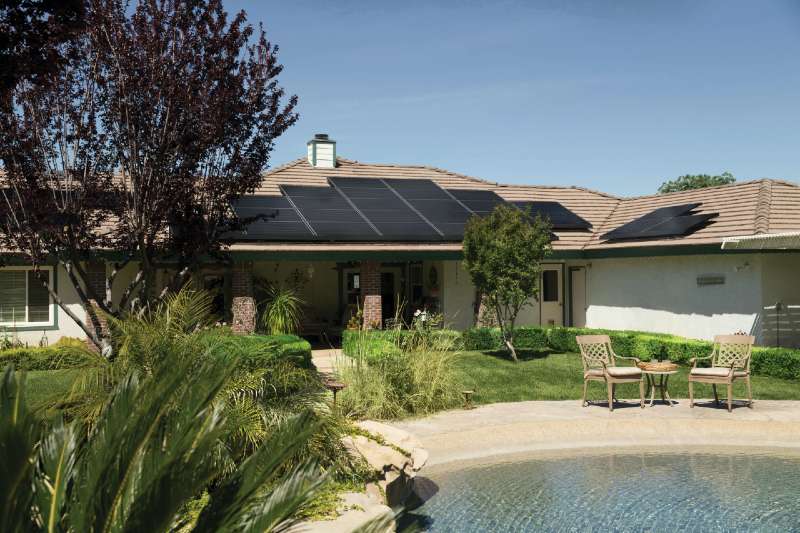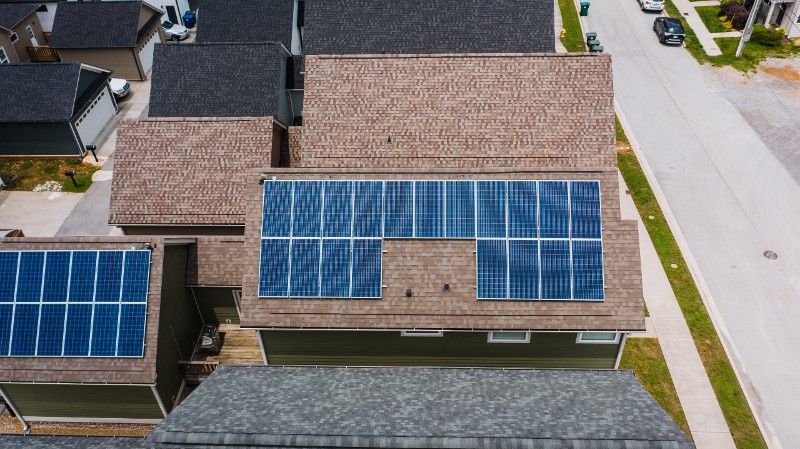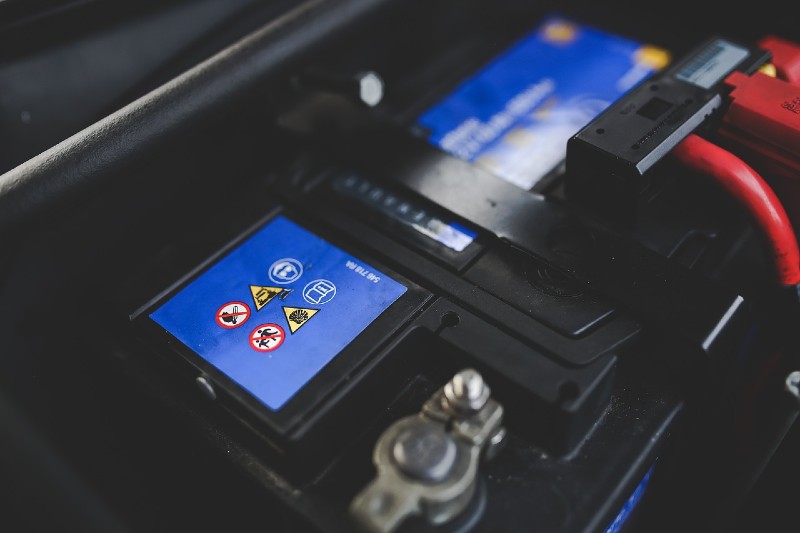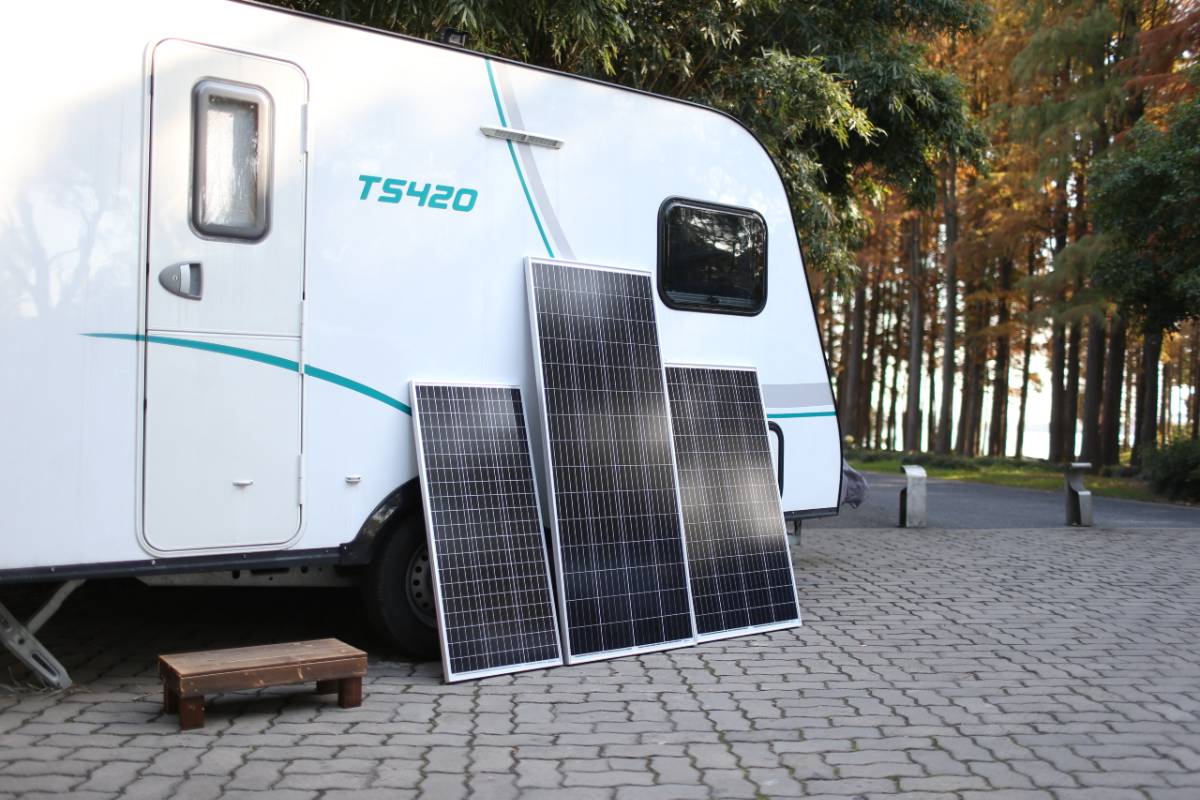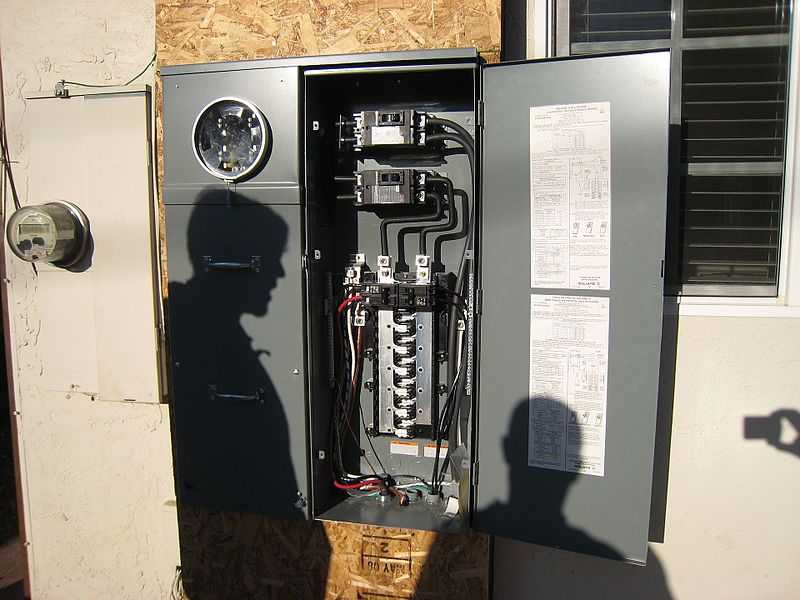There is a lot of interest in solar energy lately and for good reason!
Solar panels have the potential to reduce our reliance on fossil fuels, and they can also help us save money on our energy bills.
But one question that often comes up is “How many kWh do solar panels produce?”
On average, solar panels produce 4-5 times their wattage rating per day.
So if you have a 6kW solar panel system, you should expect it to produce 24-30kWh per day.
But this is just an estimation, there are a lot of factors that can influence how many kWh your panels actually produce in a day.
In this article, you’ll discover what affects solar panel electricity production and exactly how many kWh will your solar panels produce.
What Affects the Amount of Electricity Your Solar Panels Can Produce?
1. Solar Panel Wattage
Solar panels are rated in watts (W), which is an indication of how efficient they are at converting sunlight to electricity.
The higher the solar panel efficiency, the more electricity they can generate from the same amount of sunlight.
Now, when they rate solar panels, they shine a 1,000W/m² light onto the panels and measure how much electricity they produce.
For example, if a panel is rated 100W, it means that it produces 100Wh of electricity for every 1 hour of exposure to 1,000W/m² of solar energy.
So the higher the solar panel wattage, the more electricity it will produce.
2. Sun Irradiance in Your Area
Now, we know that solar panels are rated for how much electricity solar panels can produce for every hour of 1,000W/m² sunlight exposure.
But, as you know, sunlight isn’t constant throughout the day.
At dusk, the sunlight intensity might be 400W/m², while at midday, the sunlight intensity might be 1,200W/m².
In fact, there are a lot of factors that can affect how much sunlight your solar panels receive on any given day, such as the season, the weather, and how close you are to the equator.
So, how can you find out how much sunlight your solar panels will receive in a given area?
Well, to figure that out, you need to know something called peak sun hours.
Peak sun hours are the average number of hours per day when solar irradiance averages 1,000W/m².
So if you get 5 peak sun hours per day, it means that your panels will get 5,000W/m² of solar irradiance.
You can find the number of peak sun hours your area receives using this calculator.
3. Azimuth & Tilt Angle
Solar panels work best when they are perpendicular to the sun’s rays, which means that their azimuth and tilt angle are important to how many kilowatt hours solar panels can produce.
There is no such thing as the perfect angle for solar panels, as each installation will be different, depending on your roof, whether you live in the northern or southern hemisphere, and how much space your panels have.
You can use this tool to check the best tilt angle using and this one to check the best azimuth direction for your home.
4. Heat
Heat is generally very bad for electrical systems and solar panels are no exception.
In fact, heat can reduce the efficiency of your solar panels by up to 25%.
Without getting too nerdy, heat will make the electrons in your solar panels bounce around too much like a kid with too much sugar, and this will make the panel lose a lot of its generated power.
5. Shading
Another major problem for solar panels is shade.
Solar panels need direct sunlight to work their best, but if they are in the shade, no electricity will be generated.
And that’s not even the worst part.
If a solar panel is shaded, it can block the flow of electrons from the other panels on its circuit.
Think of your solar panel system as a pipe with water flowing through it.
Now the shaded panel would be more like a clog in this pipe, stopping the flow of water to the other solar panels.
This only happens if your solar panels are connected in series but most likely your solar array will have a combination of both series and parallel connections, so even if one panel is shaded, you won’t lose all of your generated electricity.
How to Calculate Solar Panel Electricity Production
You can easily calculate how many kWh the solar panel produces using this simple formula:
Solar Panel Output = Solar Panel Wattage Rating x Number of Peak Sun Hours
For example, if you have a 200W solar module and you live in California (5.31 peak sun hours per day), then your solar panel would produce:
200W x 5.31 = 1062Wh or 1,1kWh per day.
Now, there is one important thing to keep in mind.
You don’t get 100% of the electricity you produce.
Solar arrays are an electrical system and as the case of any system, there are some solar power losses.
You lose power because of the wires that connect the solar array to your home, the mismatch of solar panel and inverter ratings, the efficiency of your inverter, and many more.
These losses can make up to 24% of your total electricity production, so if you want to be accurate about calculating your solar panel output, then you need to account for these losses.
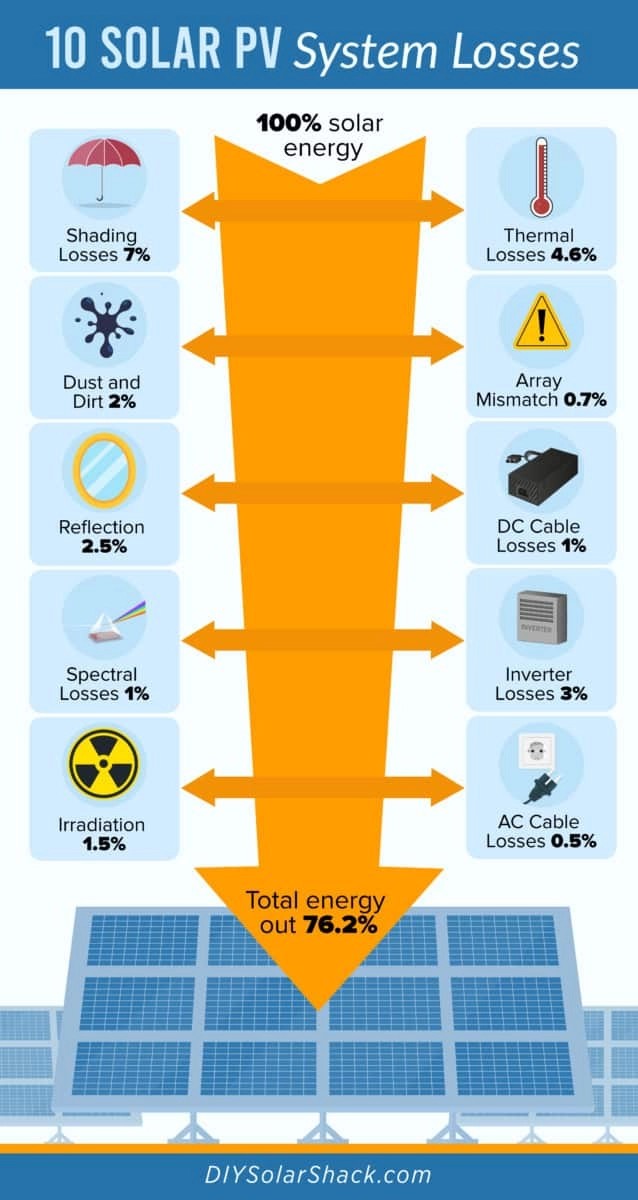
So the actual amount of electricity solar panels produce can be calculated as:
Real Solar Panel Output = Solar Panel Wattage Rating x Peak Sun Hours x (1-Losses)
For example, if you have a 300W solar panel and you live in California (5.31 peak sun hours per day), then your solar panel would produce:
300W x 5.31 x 0.76 = 1210Wh or 1,21kWh per day.
How Many kWh Does Solar Panel Produce?
Scenario:
- Solar System Size: 5,000W
- Location: Texas (5.32 peak sun hours per day)
- Power Losses: 15%
The first example is a fairly typical scenario for a residential-sized solar array and the electricity production can be calculated as:
Real Solar Panel Output = 5,000W x 5.32 x (1-0.15) = 22610Wh or 22.6kWh per day.
So you can expect your solar panels to generate 22.6kWh per day.
FAQs
How Many kWh Does Solar Panel Produce per Day?
A solar panel produces 4-5 times its wattage rating per day.
So if you have 500W of solar panels, you should expect 2-2.5kWh per day, which is enough to power
How Many Kwh Does a Solar Panel Produce per Day UK?
A solar panel in the UK produces 4.1 times its wattage rating per day.
So a single 400W module would produce 1.6kWh per day in the UK.
How Many kWh Do Solar Panels Produce per Month?
A solar panel produces 120-150 times its wattage rating per month.
So if you have 8kW of solar panel, you should expect 960-1200kWh per month.
How Many kWh Do Solar Panels Produce per Year?
A solar panel produces 1460-1825 times its wattage rating per year.
How Many kWh Do Solar Panels Produce Per Square Meter?
Solar panels produce between 750W and 940W per square meter.
Last Words
Knowing how many kWh solar panels produce per day can help you better estimate the savings you can make by going solar.
It is also important to keep in mind that these are just estimates and not all factors, such as power losses and shading, will be accounted for.
If you want to know exactly how much electricity your solar panels will produce, you may want to consult with a professional solar installer.
But in general, you can expect your solar panels to generate 4-5 times their wattage rating per day.

